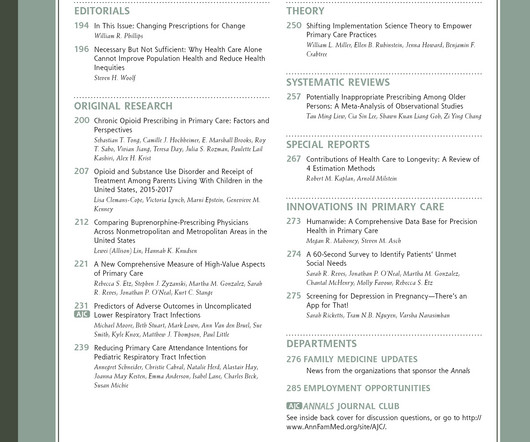Rural Ontario Complete Lifestyle Medicine Intervention Program (CLIP-ON) [Dissemination and implementation research]
Annals of Family Medicine
NOVEMBER 20, 2024
Context: Chronic illness is at a record high in society. Lifestyle medicine programs have demonstrated a positive impact in managing these diseases but are poorly implemented and unavailable in rural communities. gender, age, race, education, etc.), Outcome Measures: Participant characteristics (ie.












Let's personalize your content